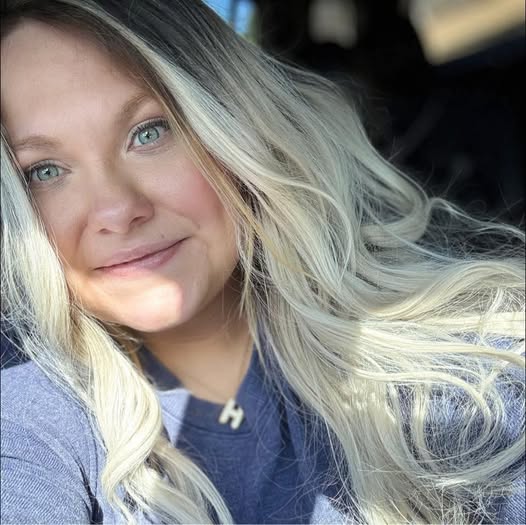Remembering Hayley Davidson: A Life of Service Cut Short and a Call for Change
KENTUCKY — The tragic death of Hayley Davidson, a devoted social worker for the state of Kentucky, has shaken communities across the Commonwealth and beyond. Hayley, whose career was rooted in compassion and advocacy for those in crisis, was murdered by her boyfriend — a man sworn to serve and protect, a deputy. In an unbearable act of violence, he then took his own life.
Hayley’s story is devastating not only because of the senseless loss of a young woman whose life was dedicated to helping others, but also because of the cruel irony: she gave her life to shielding vulnerable people from violence — and became a victim of it herself.
Those who knew Hayley speak of her with reverence and heartbreak. A friend. A fierce advocate. A bright light with a contagious laugh and an unwavering sense of purpose. Hayley served families in some of the hardest circumstances imaginable, giving voice to children, survivors, and the often-forgotten. Her work was difficult, often thankless — but she never turned away.
Now, those she left behind are making a promise: her death will not be in vain.
A Promise to Hayley — And a Path Toward Prevention
In the wake of Hayley’s murder, loved ones, colleagues, and advocates are mobilizing to ensure that systemic change follows this personal tragedy. One bold idea is already gaining traction: the creation of a Domestic Violence Offender Registry in Kentucky.
Just as the state maintains a sex offender registry, the proposal aims to establish a public database that would allow individuals — particularly survivors of abuse — to search for past domestic violence convictions. The goal is to empower people with knowledge that could inform decisions and potentially save lives.
“I don’t have the words to explain the heartbreak or the rage. But I did make a promise: I told Hayley’s friends and family that I would do everything I could to make sure her death wasn’t in vain,” a leading advocate shared in a heartfelt public post.
The movement has already begun. Advocates have reached out to lawmakers in Lexington and Jackson, urging them to sponsor and champion the bill in the upcoming legislative session. Early conversations have been hopeful, with bipartisan interest growing.
Why a Domestic Violence Offender Registry?
Statistics from the National Coalition Against Domestic Violence reveal the chilling scope of the issue:
-
1 in 4 women and 1 in 9 men have experienced severe intimate partner physical violence in their lifetime.
-
In over half of femicide cases, the victim was killed by a current or former intimate partner.
-
In many of these cases, prior abuse was known — but not publicly accessible.
Survivors, friends, and family members often lack access to information that could flag patterns of violence, especially when abusers have convictions in different counties or are protected by positions of power.
A registry would not be a catch-all solution, but it could provide transparency, accountability, and one more tool in the effort to prevent fatal violence.
“Survivors deserve that chance. Hayley deserved that chance,” said one of the early organizers. “If a known abuser moves next door, begins dating someone new, or hides their past behind a badge, the public should have the right to know. We track sex offenders. Why not track violent offenders in the home?”
A Call to Action
The grassroots movement to honor Hayley’s legacy is already growing. Residents of Kentucky are being encouraged to:
-
Contact local and state legislators, urging them to support the Domestic Violence Offender Registry bill.
-
Share Hayley’s story — not just the tragedy, but her life, her work, and the promise made in her name.
-
Support survivors by donating to local domestic violence shelters, volunteering, or simply offering empathy and space.
-
Push for reform in your own state if you live outside Kentucky.
One supporter has offered to share email templates, contact lists, and bill language with anyone who wishes to get involved. The message is simple: You don’t have to know Hayley to fight for her. You just have to believe that no one else should meet the same fate.
Standing With Survivors
This fight is deeply personal for many — those who have survived abuse, those still trapped in it, and those mourning someone they lost. If you’re in that place, know this:
You are not alone. You are not unseen. You are not without hope.
To Hayley Davidson — your life mattered. Your work made a difference. And now, your name is a banner under which others will rise and fight for justice, protection, and lasting change.
If you or someone you know is experiencing domestic violence, help is available.
Call the National Domestic Violence Hotline at 1-800-799-SAFE (7233) or visit www.thehotline.org.
